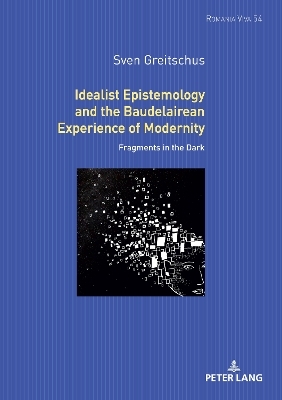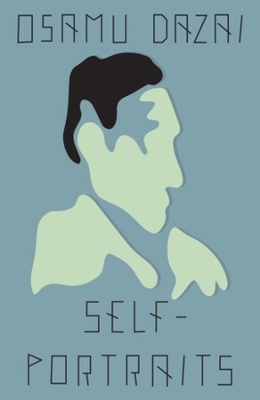
Idealist Epistemology and the Baudelairean Experience of Modernity
Peter Lang AG (Verlag)
978-3-631-90210-3 (ISBN)
This study proposes an epistemological model on the basis of a streamlined and heavily modified German Idealism. With an analytical focus on the French Second Empire, the underlying research question is rather straightforward: how is knowledge created in material modernity? Using my epistemological model as a methodology for cultural criticism, a second research question emerges: how does the creation of knowledge in material modernity affect human existence? In this context, my argument revolves around the work of Charles Baudelaire, who, as the first poet of modernity, serves as a cultural-critical gateway. I conclude that the specific conditions of material modernity eventually produce an epistemological darkness ultimately leading to fatalism in the guise of a materialist teleology.
Sven Greitschus studied European cultural history at Bangor and Cambridge before returning to Germany. His research interests included nineteenth-century art criticism, the intersection between politics and aesthetics as well as semiotic code. He now works as a department head at the Federal Employment Agency, where questions of social development and integrity remain of great interest.
Table of Figures 11
Abstract 13
Acknowledgements 15
Chapter 1
Darkness There: Introduction 17
Hypothesis 28
Methodology 31
Trajectory 33
Chapter 2
Compagnon’s Conundrum: Review of Baudelairean Modernity 41
Benjamin, Schizophrenia, dédoublement 45
Time, Trauma, Violence 60
Le Beau dans le mal: Ethics, Politics, ‘Second Empire Aesthetics’ 65
Le Mal 66
Le Beau 74
Le Beau moderne: Correspondances, Déchéance, ‘Baudelairean Aesthetics’ 102
Correspondances 113
Déchéance 119
La Seconde Révolution: Prose, Poetry, ‘Baudelairean Poetics’ 124
La Première Révolution 125
La Seconde Révolution 126
Part I: Analysis 133
Chapter 3
The a priori of Experiencing Modernity: A Return to Charles Baudelaire as the First Poet of Modernity 135
Perceiving Space and Time: Baudelaire’s Modern Artist and Child 141
Walter Benjamin and the First Poet of Modernity 148
Fragmented a priori and the Bergsonian Selves 157
Essai sur les données immédiates de la conscience (1889) 161
‘La Chambre double’ (1862): ‘Mais un coup terrible, lourd’ 168
Chapter 4
The Epistemological Dialectic of Experiencing Modernity: Between Individual and Instant 173
Photography, Memory, Imagination—and Happiness 178
‘L’Horloge’ (1857): The Engagement with the Instant is Elitist 185
‘L’Horloge’ (1860): The Engagement with the Instant is SocioCollective 188
Two Forms of Happiness 194
Idealist Epistemology in ‘A une passante’ 200
Hegelian Dialectic and the Instant as Object Itself 203
‘Un éclair … puis la nuit!—Fugitive beauté’ 209
Part II: Synthesis 219
Chapter 5
The a posteriori of Experiencing Modernity: Representing Modern Human Existence 221
Exchange, Communication, the Blasé and the Dandy 226
‘La Fausse Monnaie’ (1864): Exchange 228
‘Les Yeux des pauvres’ (1864): Communication 241
‘The Metropolis and Mental Life’ (1903): The Blasé and the Dandy 251
Darkness There: Society and Existence from the Viewpoint of Death 259
Chapter 6
Conclusion to Experiencing Modernity: Les Fleurs du Mal and Le Spleen de Paris 277
‘Les Projets de préface’ (posthumously between 1868–1968) 277
‘Lettre à Arsène Houssaye’ (1862) 283
‘Les Bons Chiens’ (1865) 286
Bibliography 295
Selected Primary Sources 295
Selected Secondary Sources 296
Index 307
| Erscheinungsdatum | 26.03.2024 |
|---|---|
| Reihe/Serie | Romania Viva ; 54 |
| Mitarbeit |
Herausgeber (Serie): Uta Felten, Anna-Sophia Buck |
| Zusatzinfo | 15 Illustrations, unspecified |
| Verlagsort | Bern |
| Sprache | englisch |
| Maße | 148 x 210 mm |
| Gewicht | 479 g |
| Themenwelt | Geisteswissenschaften ► Sprach- / Literaturwissenschaft ► Anglistik / Amerikanistik |
| Geisteswissenschaften ► Sprach- / Literaturwissenschaft ► Literaturwissenschaft | |
| ISBN-10 | 3-631-90210-7 / 3631902107 |
| ISBN-13 | 978-3-631-90210-3 / 9783631902103 |
| Zustand | Neuware |
| Haben Sie eine Frage zum Produkt? |
aus dem Bereich


